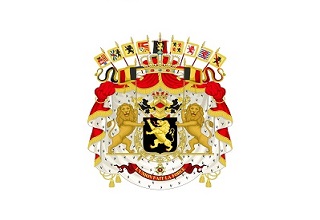Regarding the Inspection and Quarantine Requirements for Coffee Bean from Burundi to China
I. Inspection and quarantine basis
(I) "Biosafety Law of the People's Republic of China";
(II) "Law of the People's Republic of China on Entry and Exit Animal and Plant Quarantine" and its implementing regulations;
(III) "Food Safety Law of the People's Republic of China" and its implementing regulations;
(IV) "Import and Export Commodity Inspection Law of the People's Republic of China" and its implementing regulations;
(V) "Administrative Measures for Import and Export Food Safety of the People's Republic of China";
(VI) "Protocol on Plant Quarantine Requirements for the Export of Burundi Coffee Beans to China between the General Administration of Customs of the People's Republic of China and the Ministry of Environment, Agriculture and Livestock of the Republic of Burundi".
II. Names of commodities allowed to enter the country
The coffee beans in this announcement refer to the unroasted shelled coffee (Coffea Arabica L.) seeds grown and processed in Burundi, from which the outer skin, pulp, inner skin and silver skin have been removed, and are made through drying, screening and other processes.
III. Permitted origins
The entire territory of Burundi.
IV. Pests of concern
Coffee beans exported to China must not carry the following pests:
1. Hypothenemus hampei
2. Zabrotes subfasciatus
3. Acanthoscelides obtectus
V. Pre-shipment requirements
(I) Registration requirements.
The Ministry of Environment, Agriculture and Livestock of Burundi shall inspect the production and processing enterprises of unroasted coffee beans exported to China, confirm that they meet the requirements of Chinese customs, and recommend them to Chinese customs. Chinese customs will conduct an audit and implement registration for the enterprises that pass the audit.
(II) Production requirements.
1. The Ministry of Environment, Agriculture and Livestock of Burundi shall conduct epidemic investigations and integrated prevention and control management of quarantine pests of concern to Chinese customs during the growth of coffee and the production, processing and storage of coffee beans in accordance with relevant international plant quarantine measures. Pest epidemic investigations and integrated prevention and control should be completed under the guidance of technical personnel. Technical personnel must pass the training of the authorized institutions of the Ministry of Environment, Agriculture and Livestock of Burundi. In the pest control work, pesticides prohibited by the Chinese Customs shall not be used.
2. According to the needs of the Chinese Customs, the Burundi Ministry of Environment, Agriculture and Livestock shall submit to the Chinese Customs an investigation report on the occurrence of pests and a record of integrated control. When new pests occur in Burundi coffee, the Burundi Ministry of Environment, Agriculture and Livestock shall promptly inform the Chinese Customs of the relevant situation and the control measures taken so that the Chinese Customs can conduct an assessment.
3. During the production and processing of coffee beans, measures must be taken to remove moldy beans, insect-infested beans, and foreign objects. Live insects, insect eggs, soil, weed seeds, plant residues, gravel and other impurities shall not be carried.
(III) Packaging and transportation requirements.
1. Processed coffee beans should be stored separately and separated from coffee beans sold to other markets and unprocessed coffee beans to prevent contamination. Before export, the coffee beans should be fumigated as necessary to kill storage pests.
2. Coffee beans should be packaged using clean, new materials that meet plant quarantine requirements. Each package should be marked with the words "本产品输往中华人民共和国/This product will be exported to the People's Republic of China" in Chinese and English, as well as the product name, processing company and its registration number in Chinese or English.
3. Before shipment, the shipping tools must be thoroughly inspected to prevent contamination by pests.
(IV) Product requirements.
Coffee beans must not carry quarantine pests of concern to the Chinese Customs and must comply with Chinese plant quarantine laws and regulations and Chinese national food safety standards.
(V) Pre-export quarantine and certificate requirements.
Before export, the Burundian Ministry of Environment, Agriculture and Livestock must conduct inspection and quarantine on coffee beans exported to China, and issue a phytosanitary certificate for those that meet the requirements, indicating the name and registration number of the processing enterprise, and in the additional statement: "This consignment complies with the requirements specified in the Protocol of Phytosanitary Requirements for Export of Coffee Beans from Burundi to China, and is free from quarantine pests of concern to China." For fumigation, the name of the fumigant, dosage, treatment temperature and duration, etc., must be indicated in the phytosanitary certificate.
VI. Entry Inspection and Quarantine
When coffee beans arrive at Chinese ports, the Chinese Customs will conduct inspection and quarantine in accordance with the following requirements.
(I) Certificate verification.
1. Verify whether it comes from a registered enterprise;
2. Verify whether the attached phytosanitary certificate is authentic and valid.
(II) Cargo inspection.
In accordance with relevant laws, administrative regulations, rules and other provisions, combined with the requirements of this announcement, inspection and quarantine shall be implemented on imported coffee beans. Those that pass the inspection and quarantine shall be allowed to enter the country.
(III) Disqualified treatment.
1. If there is no valid plant quarantine certificate, it will be returned or destroyed;
2. If it comes from an unregistered processing enterprise, it will be returned or destroyed;
3. If soil is found, it will be returned or destroyed;
4. If quarantine pests or other living quarantine pests, plant residues, etc. of concern to the Chinese Customs are found, they will be treated by pest control, return or destruction;
5. If other situations that do not meet China's entry quarantine requirements or food safety requirements are found, they will be handled in accordance with relevant laws and regulations.
If the above non-compliance is found, the Chinese Customs will notify the Ministry of Environment, Agriculture and Livestock of Burundi, and suspend the relevant enterprises' qualifications to export to China depending on the severity of the violation until the Chinese Customs confirms that the problem has been effectively rectified.
GACC
Sep. 13 2024




